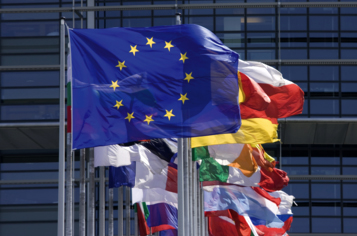Foreign Affairs Council in Brussels
23 January 2012 News
Ministers of Foreign Affairs of EU countries, meeting in Brussels today as the Foreign Affairs Council, strengthened sanctions against Tehran to press for fast and effective resumption of dialogue on Iran’s nuclear programme. The sanctions include an embargo on new contracts for imports of crude oil, in the transport sector in EU member states as well as new financial constraints.
At this, the first meeting in 2012 of the Foreign Affairs Council, Bulgaria was represented by Deputy Foreign Minister Dimiter Tzantchev. The Council discussed the increased violence in Syria in spite of the Arab League Mission. Ministers supported the Arab League Mission plan for the next steps to be taken to support the prospects for political transition. This path must proceed via constitutional reforms, dissolution of the repressive apparatus and timely organisation of free elections under international supervision, Deputy Minister Tzantchev said. The Council also expanded the list of persons subject to sanctions by the EU.
The first months of 2012 bring a new opportunity for Serbia to move closer to the EU by fulfilling the requirements of the December EU Council, Deputy Minister Tzantchev said. He expressed the expectation that Belgrade and Priština would respect the principle of free movement and make greater efforts to calm the situation in northern Kosovo.
The continuing changes in the Arab World emphasise the need for the urgent resumption of direct Israeli-Palestinian negotiations, Deputy Minister Tzantchev said. Bulgaria supports the efforts by the Quartet and welcomes the meetings between Israeli and Palestinian negotiators in Amman on January 3 and 9 2012 and especially their independent meeting on January 14. There is no alternative to achieving a two-state solution through negotiations.
The Council reviewed its policy on Belarus, a year after the presidential elections, and expressed support for the activities of the European Commission to assist civil society there.
The Council further discussed the deterioration of the situation between Sudan and South Sudan.
